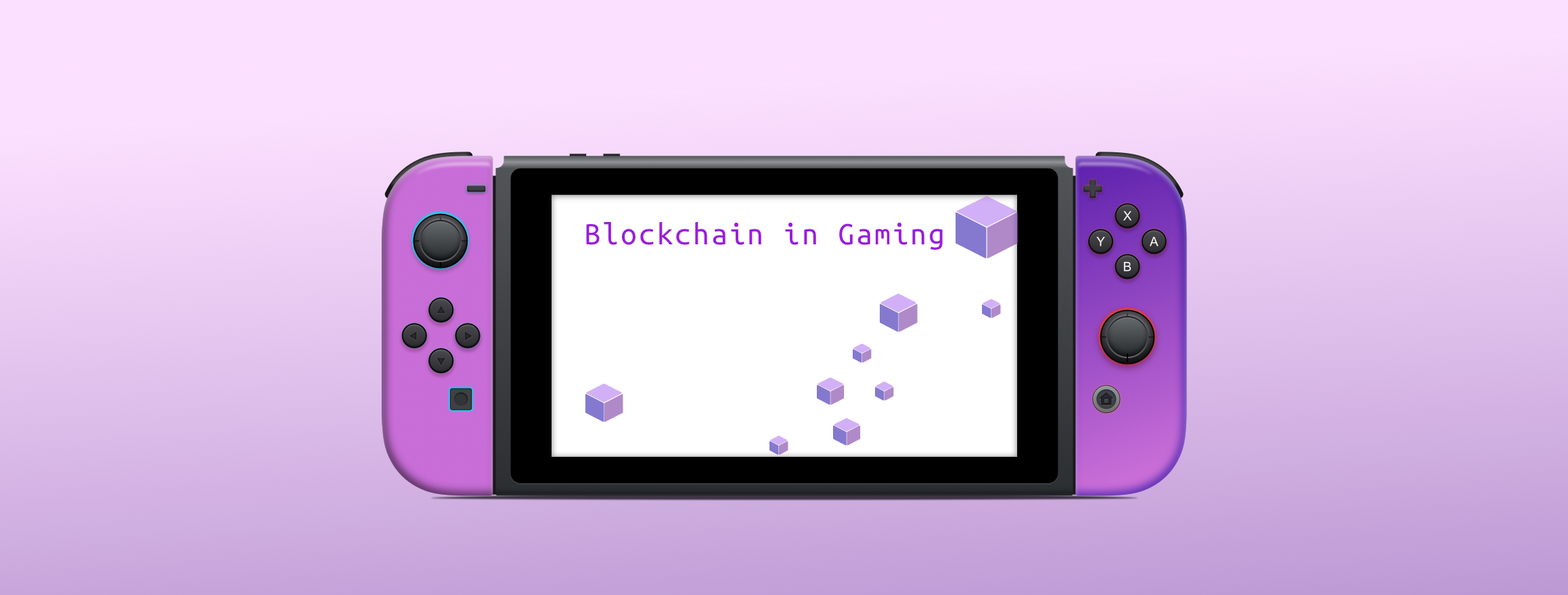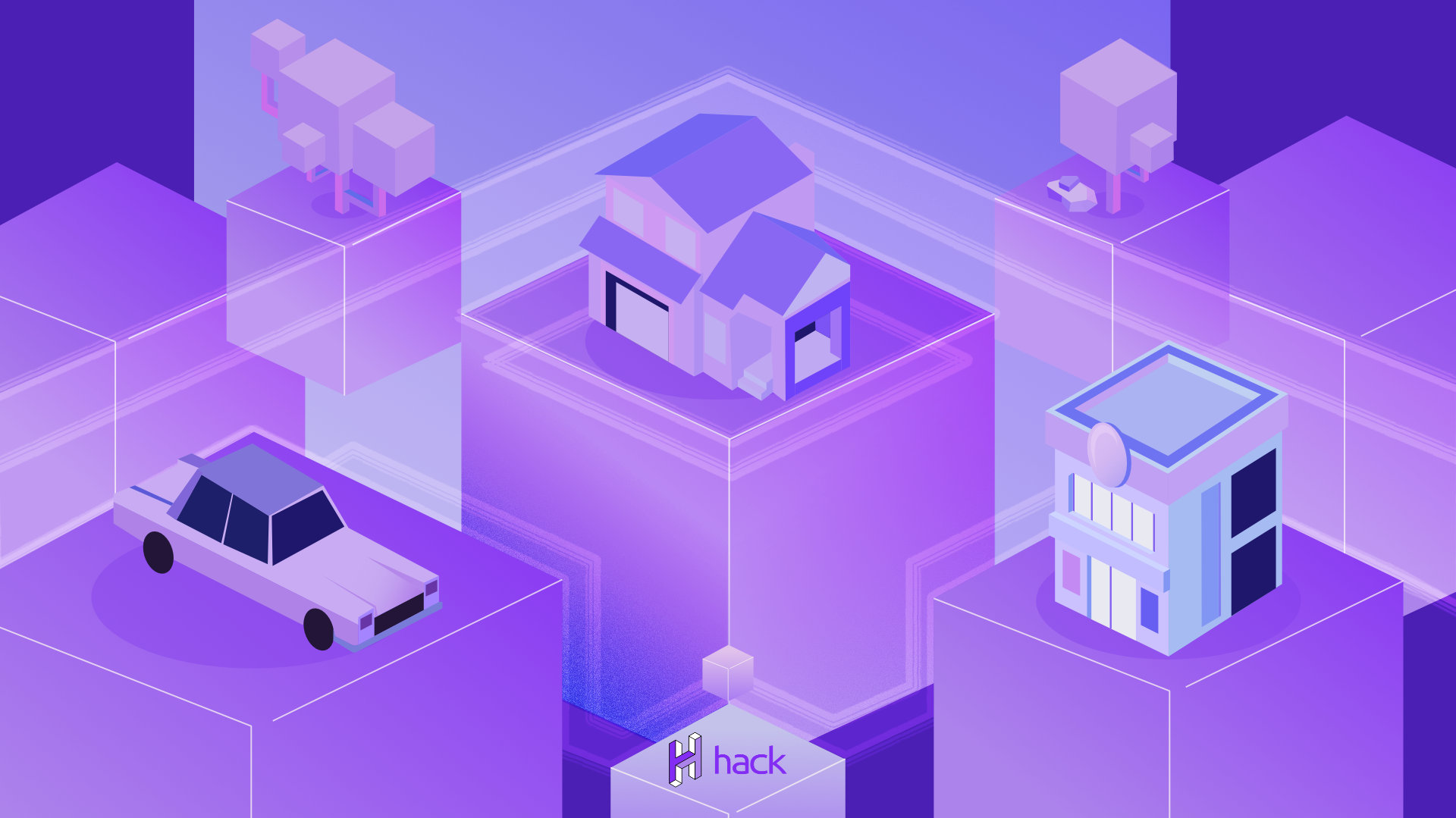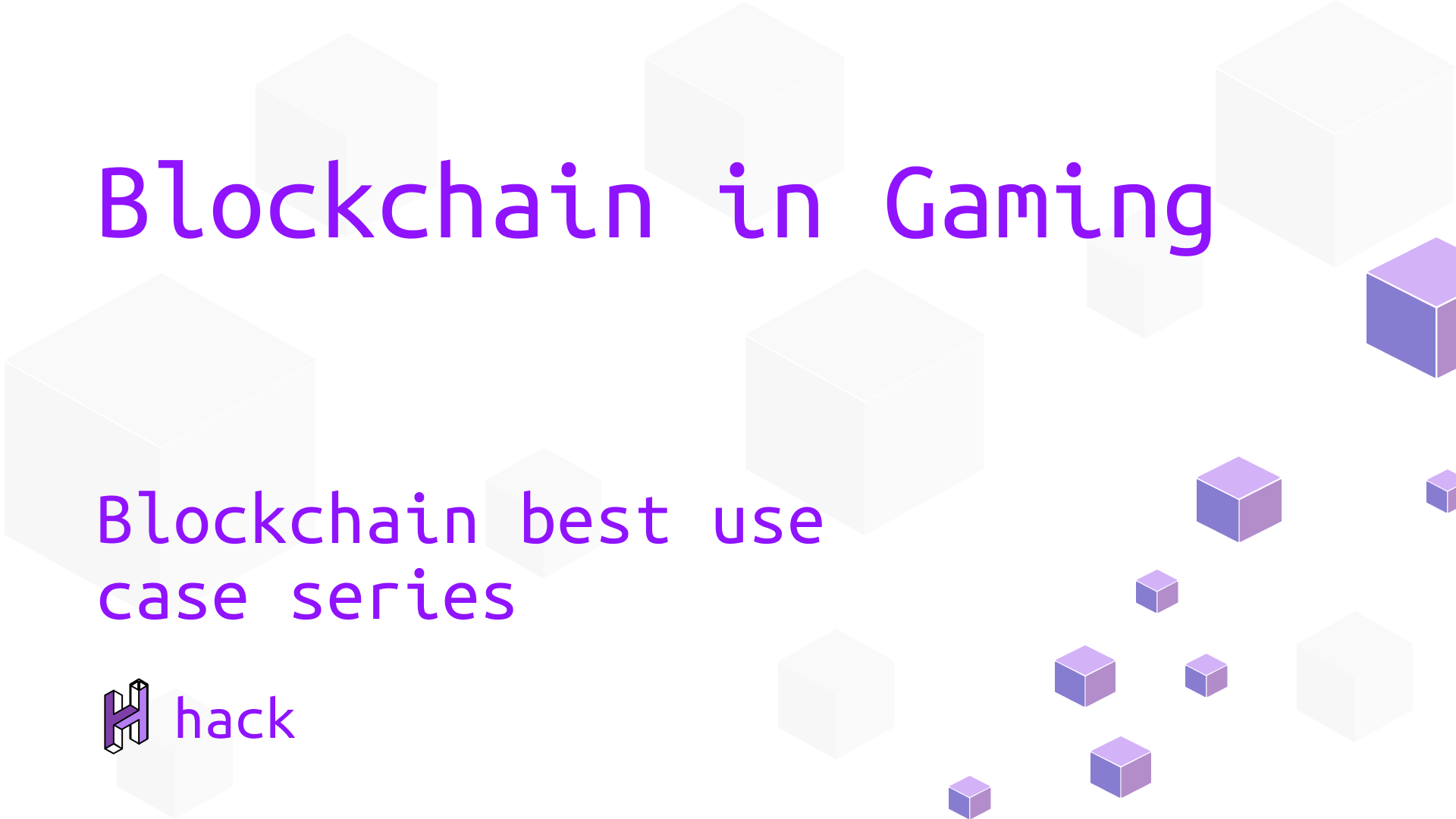
In previous articles, we have discussed the fundamentals of blockchain technology. In this article, we are going to explore the benefits of blockchain technology in the gaming industry.
Gaming in numbers
As per recent reports, the gaming market currently represents the largest segment of the global digital content industry (bigger than movie and music industries combined), generating billions of dollars in revenues annually and attracting an extremely wide audience. Gaming is also considered to be one of the business areas in which blockchain technology is being implemented most rapidly.
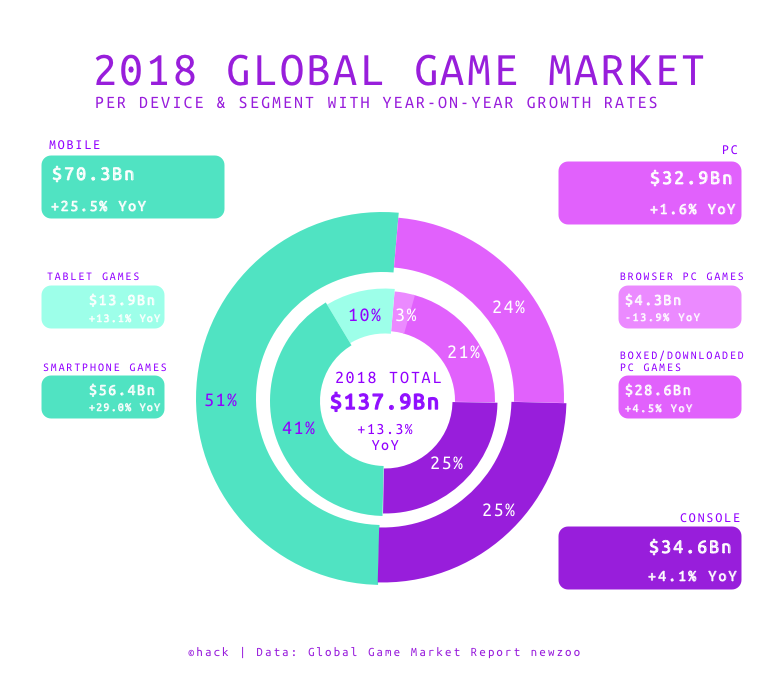
According to a Newzoo report, global gaming revenues for 2018 were around $134.9 billion, 10.9% more than for 2017. Just to put it in perspective, digital distribution channels (marketplaces) account for most of these revenues.
It is important to note that mobile games are a primer and act as the key growth driver in the gaming industry, with a projected growth rate of 12.8% for 2018, taking that segment to $63.2 billion. At the same time, the forecast for overall retail sales of games is only $12.4 billion, or 9% of the whole industry.
Blockchain application in Gaming Industry
The intersection of blockchain technology, cryptocurrencies, and gaming is presenting real growth potential for both blockchain and gaming.
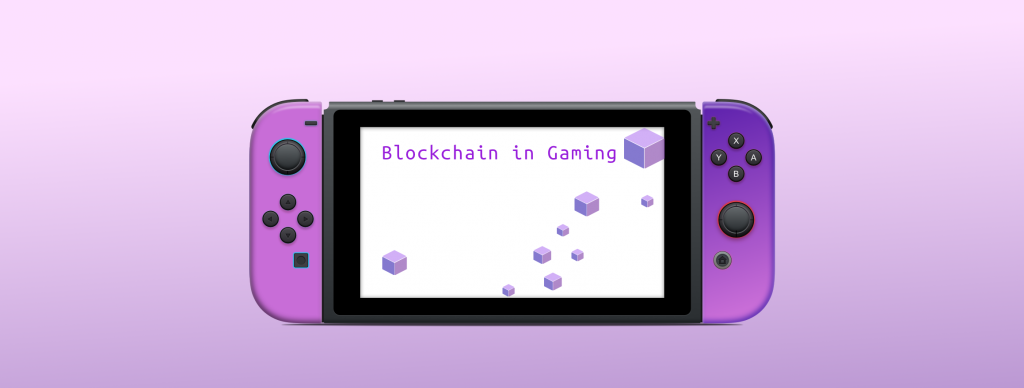
Background
The game that marks the beginning of the blockchain gaming is HunterCoin. Released in February 2014 as a live experimental test to see how blockchain technology could handle full on game worlds. The purpose of the game was to collect HUC coins, human mining, but due to its fame, when the number of players grew the blockchain started to experience processing and speed issues. This is mainly due to the fact that the game was running on a bitcoin fork (not suitable for applications that need to scale).
In 2017 was released one of the most famous blockchain games build on Ethereum, CryptoKitties. In short, it is a game of digital collectibles allowing the player to collect (buy), breed and sell different (unique) types of virtual cats.
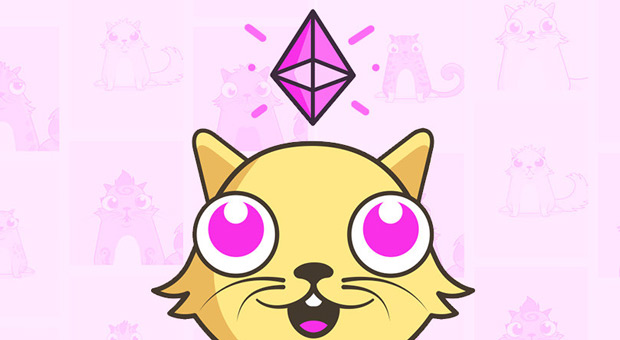
Marketplaces
Games and game items are available at marketplaces. Currently, there are both types of marketplaces, centralized and decentralized. What are the limitation and the advantages of using any of those?
The context
The world’s largest centralized marketplace for virtual goods (OPSkins), is having millions of users, billions of items listed, and trading volumes estimated to be over $46 billion. The platform job is to maintain the transactional trust between the users and to prevent fraud by maintaining huge personnel to ensure the smooth running of the platform.
Regardless of how good the service of a centralized platform (marketplace) is, centralized platforms are limiting users on the way the platform can be used and on the way they transact with each other. Settlements cost them high fees and the transfers are taking a long time to execute.
In a decentralized marketplace, problems like fraud, transactional settlement, and international payments transactions are handled via smart contract ensuring cheap, fast, secure and transparent service.
Smart Contracts
In the other hand, decentralized platforms can use smart contracts to allows the facilitation and enforcement of a virtual asset transaction that guarantees the fulfillment of an operation (buy/sell) without requiring the interference of a centralized party, ensuring the correctness of the transaction (regardless whether it is an item or a monetary value).
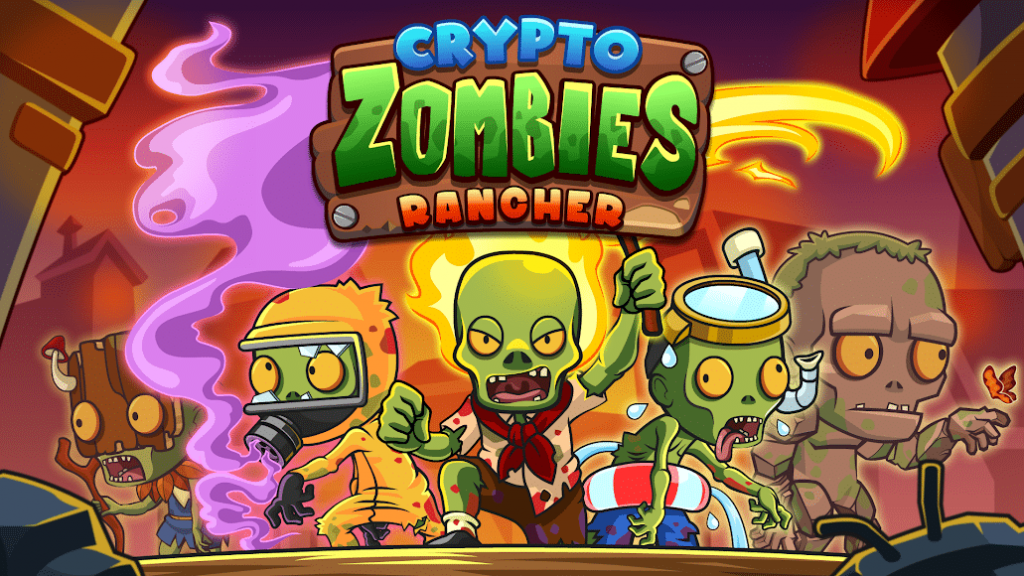
Asset transfers
Multiplayer Games Have LOTS of Items
Runescape has 35,000 and World of Warcraft, the king of MMOs has over 100,000 different items! Shooters like Overwatch and Team Fortress 2 each have thousands of skins and items.
Tokenization
The most exciting aspect of decentralized virtual goods exchanges is the ability to tokenize virtual goods.
As we can see in the above example there are thousands of game items that can be tokenized and traded. But when a player dedicates of his time and money to play a game (develop a hero) he is left with nothing when he deletes the game as all of the information about his game was stored on the company’s servers. Now with blockchain, the player can not only claim and keep his virtual assets but he can also transfer/sell it to other players.
The advantage of game assets hosted on the blockchain is that:
- Transactions and their history is easy to track (transparency)
- No one can steal your asset, as long as you keep your privet key secure
- Assets can be traded without the need for intermediary service
- Assets can be easily transferred from one gamer to another.
Better security, as well as new opportunities and incentives for gamers, are just some of the benefits that blockchain can bring to our virtual pastimes.
In a 50+ billion virtual goods market, we believe that this is extra motivation for players to claim control and ownership of their virtual goods. This could result in motivation increase, hence more user engagement and more revenues for the game development companies.
In game purchases
Another evident application of blockchain in games is the integration of cryptocurrencies that can be used for in-game purchases. Global in-game spending is expected to reach 32 billion U.S. dollars in 2020, up from 22 billion U.S. dollars in 2015.
In this sense, cryptocurrencies can be used as a link between the internal economy of the game and that of the real world. They can be transferred and traded for other cryptocurrencies or fiat money via build-in decentralized exchanges or even centralized party exchanges.
Additionally, using blockchain in game development can help create more unique objects and artifacts making them more valuable and more desirable.
Building trust
In the past couple of years, games have begun to use blockchain features such as wallets and tokens to secure ownership of game artifacts. Blockchain can also ensure the authenticity of an asset with its inbuild trust and transparency.
In the other hand, players looking to buy a virtual item can be sure about its authenticity because the items are recorded on the blockchain, further developing trust between buyers and sellers and thus stimulating more transactions.
Conclusion
In conclusion, we can say that blockchain-based, open-source, decentralized systems will make the gaming experience more secure and transparent, guaranteeing fair conditions for all members. The decentralized gaming platform is bringing in technologies that will ensure user satisfaction, add value to virtual assets, and probably expand the size of the virtual gaming market.
Game?
If you have a great idea — but you don’t have the skill to build it – get in touch with us at hello@hack.bg.
Take a look at the full list of our services on our website.
We bring ideas to life.
Also published on Medium.
